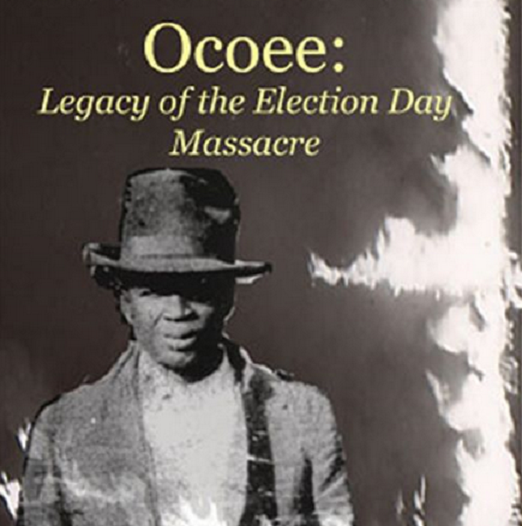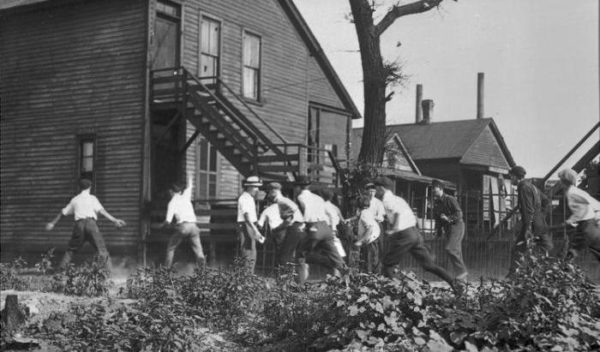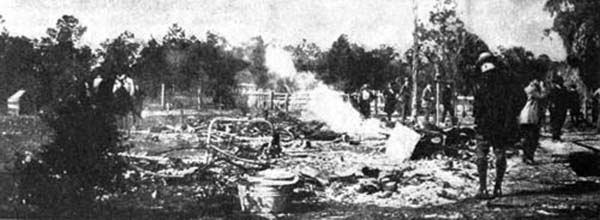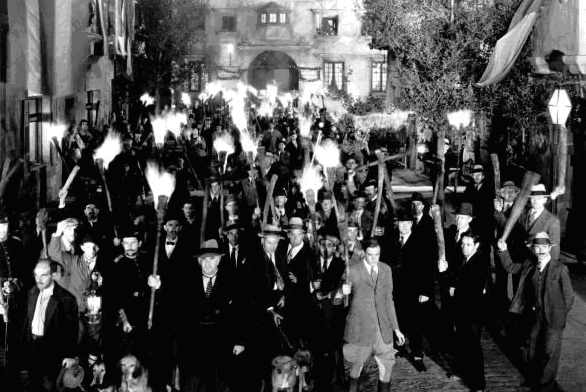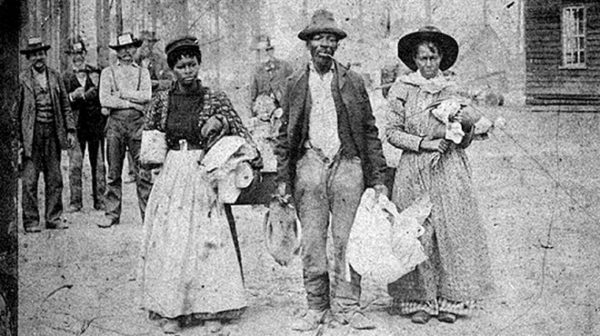Ocoee, FL Massacre ( Ocoee sits right outside Orlando): Stolen Land
Ocoee, Florida
A total of 330 acres plus 48 city lots owned by 18 Black families living in Ocoee, Florida, were lost after a violent Election Day attack on the Black community in 1920, known as the Ocoee Massacre. Some were able to sell their land at a fair price, but most were not. In 2001, the land lost by the 18 Ocoee families, not including buildings now on it, is assessed by tax officials at more than $4.2 million, according to the
APreport. The true market value is probably a lot more.
REMEMBRANCE (more in depth)
In the midst of a national euphoria of forgetting, a town called Ocoee, Florida has taken the bold step of remembering an event in the nation's history that many had tried to cover up. On Election Day, November 2, 1920 African Americans in Ocoee and in other parts of Florida sought to cast their ballots for President.
It was a revolutionary act. Black political participation would have shattered the very foundations of legal segregation in the South. A breakthrough in Florida would have accelerated the modern civil rights movement. Some of the greatest activists of the day were involved in this crusade, including James Weldon Johnson, Mary McCleod Bethune, and Walter White.
State and local officials -- along with the Ku Klux Klan -- understood that white supremacy was in trouble. They responded mercilessly. African Americans who tried to go to the polls were attacked, driven out of the state, and assassinated. In several counties, armed Klansmen surrounded courthouses on Election Day to ensure that black Floridians did not vote. In Ocoee, a well-organized group of paramilitaries killed and drove African Americans out of the town. Houses were torched, and refugees streamed out of western Orange County for days.
The NAACP's Walter White estimated that approximately fifty African Americans had been killed. A University of Florida student who interviewed local residents for a history term paper claimed in 1949 that "About thirty to thirty-five [murdered] is the most common estimate of the old timers." Ocoee
remained an all-white town for decades.
Ocoee shared much in common with the thousands of other places in America that author
James Lowen refers to as "sundown towns." These were areas where white residents colluded to drive African Americans out through coercion and violence in order to steal their land and resources.
Sundown towns were found in every state of the union and most of them were located outside of the South. Some of these all-white municipalities posted signs reading "'n----r' don't let the sun go down on you here," for generations. A resident of Ocoee wrote in 1969, "As recently as ten years ago a sign admonished the Ocoee visitor as he approached the city limits that Negroes and dogs were unwelcome."
Orange County kept the Election Day Riot under wraps. "The position among the old core of the community was: `Let's just not talk about it. What good will it do?'"
remembered Rev. Bryan Stamper, the minister of St. Paul's Presbyterian Church in Ocoee. A critical step forward was taken when area resident--and future mayor -- Lester J. Dabbs pierced the veil of silence by writing his 1969 Stetson University M.A. thesis on the 1920 conflagration. Dabbs's work was titled, "A Report of the Circumstances and Events of the Race Riot on November 2, 1920 in Ocoee, Florida."
In the 1990s, citizens in Ocoee and Orange County
organized to acknowledge the riot. These groups, which included the Democracy Forum as well as the West Orange Reconciliation Task Force, did critical work in bringing the massacre into the open, and honoring the victims.
Public discussions of the Election Day riot were
fraught with tension as participants disagreed on the proper way to commemorate the event. A catalyst for this debate was the rapidly changing demographics of western Orange County. New generations of African Americans, Hispanics, and others began moving into the area in large numbers in the 1980s. Many of the newcomers genuinely wanted to know what had happened in 1920.
On Election Day in 1920, two black men, July Perry and Mose Norman, successful entrepreneurs in Ocoee, tried to vote. One was beaten up that night; the other lynched by a mob after a gunbattle at his house that left two white "deputies" dead.
By the time the smoke from the fires set to black homes had cleared, the town's 500 black residents had fled and at least six people -- some say eight -- lay dead. Ocoee kept signs up that said "Negroes and Dogs Not Welcome" well into the 1950s. And to this day, the town has far fewer black residents than most Florida towns its size.




